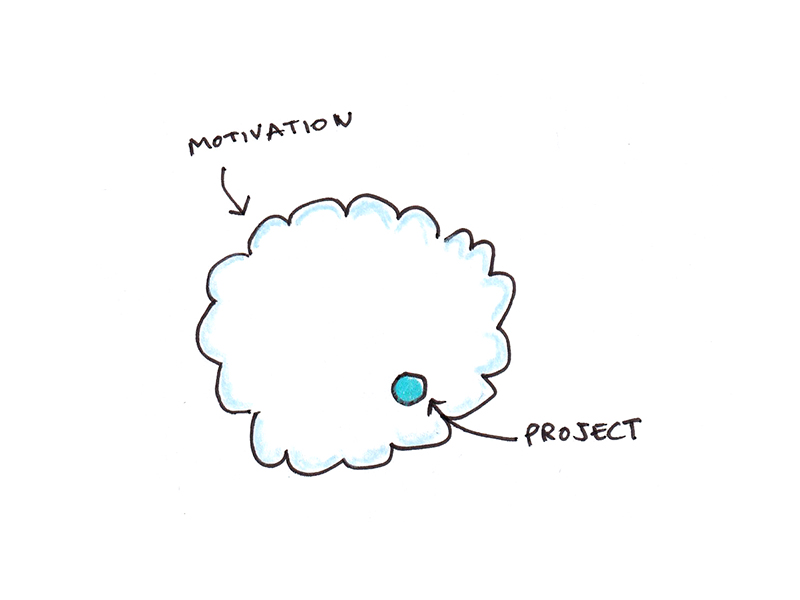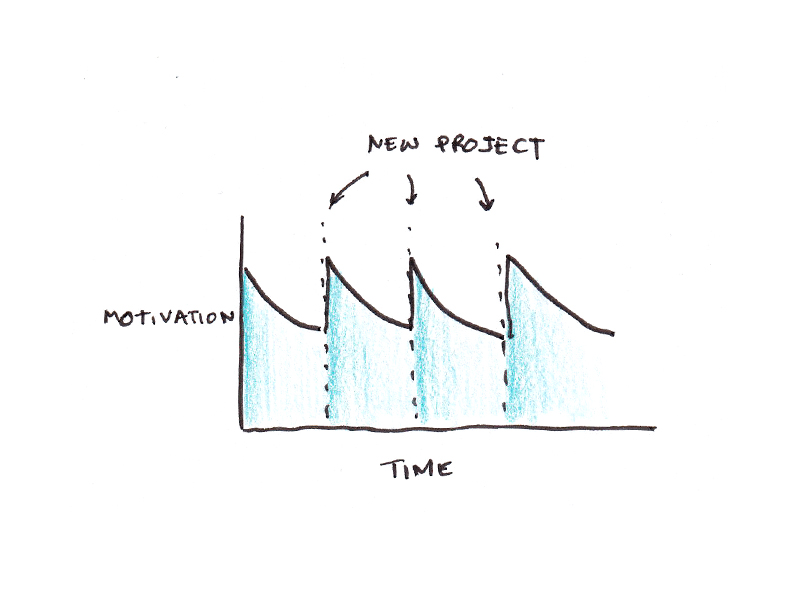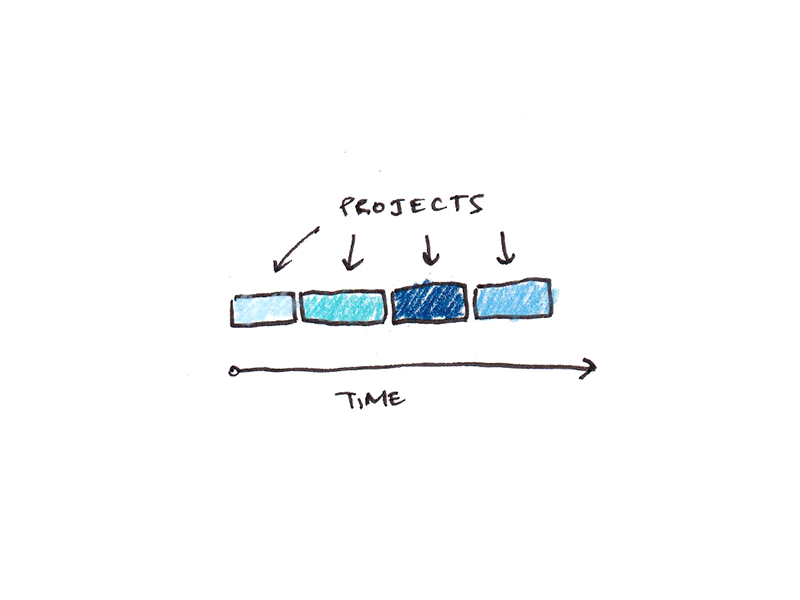Lesson 1: How to Start a Project Actually Complete

If I were to describe a habit, the biggest benefit that could bring to your life over time would be: Start regularly – and complete – wealthy projects.
Projects are larger than a single task, but are still intended to accomplish some specific operations. A project can be a variety of things. Starting a plan to exercise, learn French, move to a new city or get a new job may be a goal.
Most of us have many programs, including active efforts in daily life, and sports about hobbies to learn, sports we want to try or careers we might want to do.
But even if we have projects, our tendencies vary greatly.
Some people are Terminator. Their lives are a stable conveyor belt covering achieving goals and projects.
Others are beginner. They are passionate about new efforts, but somehow they can’t conclude with most efforts they start.
If you feel like you are more of a beginner than a completer, that’s not a shocking reason. Indeed, I have a lot of sympathy for you. I myself used to be a regular appetizer and frequent terminator.
The starter should be proud of it. Even if you may not be able to complete all projects, at least have a strong desire to do things and a passion for life. It is much better to be constantly caught up by the idea of your life than to have no wish at all.
But, over the past two decades, my personal experience and working with students, I know that being a consistent finisher isn’t always easy, even if you know that this can have huge benefits over time.
So today, let me share with you a three-step process that you can use to be a more consistent finisher:
- specific
- short
- Only one project at a time
1. specific
More specific projects are also more successful. The raw materials that motivate us are often huge and vague. It needs to shape them into formats where we can make progress.

Consider the following items, from most common to most specific:
- I want to be healthier.
- I want to keep my body in shape.
- I want to start exercising more.
- I want to start running.
- I want to run every day.
- I wake up and run every morning.
Each step you climb on the speciality ladder can make your project more effective and more likely to successfully complete it before moving on.
2. short
The motivation disappears over time. The game you start with a sprint usually ends with a slogan. There is a simple fix for this: choose a shorter time to concentrate.

For constantly improving open-ended projects (e.g., fitness, language learning, research on topics), limit your first few projects to a month’s sprint. Remember: You can always stack items that work back to back on the same goals, but a brief burst keeps you focused.
If your project is defined by all-or-nothing achievements (e.g., doing business, writing books, graduating from college), then I suggest you either find short-term milestones to focus (e.g., getting one client, writing books, next exam, passing your next exam), or choosing when working on longer projects. A four-year project should have more inspiring ideas before starting than a four-week effort.
3. Only one project at a time
After selecting a project, you want to complete the project or deliberately put it aside before selecting a new project. Resist the urge to start any new project until you exit the last one.

While there are always some lower projects that make up a project, the intention is most important. Your daily habits, daily work and the “whirlwind” will continue, but be persistent in working on new projects until your last official ends.1
Become a project Completednot just one starternot something that happened once. Instead, this is a kind of metahabit, a practice you build and strengthen through repeated experiences. Learning takes some time and practice to learn, but by choosing the right projects and completing them consistently, you can drive your life in any direction.
_ _ _
Next week, I will be hosting a new course, Quick Learner. This course teaches strategies I use for learning projects such as MIT Challenge, no English for a year and most recently a Foundation. In this six-week course, I teach you not only how to design successful projects, but also to optimize your learning and results. But first, I want to share how to get from completing projects to making them Effective– Select activities that may speed up learning.
footnote
- I want to thank 4 disciplines implemented In order to distinguish the “torna” of daily life from the “torna” of intentional goals above them.



